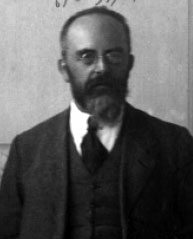Brouckère Louis de

Brouckère (Louis de) (1870, Roeselare, West Flanders – 1951, Brussels) was a Belgian political and public figure, a right-wing socialist. He was trained as a lawyer. He was one of the leaders of the Belgian Socialist Party (Deputy Chairman 1918-1940); one of the main ideologists of the Second International and a member of its international bureau. From the beginning of the 20th century, he was a member of the Belgian Chamber of Deputies. He held significant positions in the Belgian government. From 1920, he represented Belgium in the League of Nations.
Brouckère had close ties with the representatives of the government of the Democratic Republic of Georgia (1918-1921) and supported the international recognition of Georgia. After the annexation of Georgia by Soviet Russia in 1921, Brouckère actively worked for the restoration of Georgia's independence. On September 20, 1921, he presented a resolution on Georgia at the 6th session of the League of Nations' Commission, and then (on September 22) at the 3rd General Assembly of the League. With the active support of the Swiss representative J. Motta and the French delegation, the resolution was adopted. It stated: “The General Assembly of the League of Nations, having considered the situation in Georgia, calls on the Council to closely monitor the developments in this region, to take advantage of every opportunity that arises, and to assist in the peaceful restoration of normal conditions in the country in accordance with international legal norms.” With the leadership of the French and British representatives, this resolution was renewed and adopted in an expanded form at the 15th session of the League of Nations General Assembly on September 11, 1925. After this, the League of Nations refused to recognize the de facto situation of Georgia as part of the Soviet Empire. Due to Brouckère's active intervention, the issue of Georgia was included in Article I, Paragraph 2 of the League's Covenant. This paragraph recognized the restoration of the Democratic Republic of Georgia as one of the main conditions for Soviet Russia’s admission to the League of Nations.
Brouckère had close relations with many prominent figures of the Georgian political emigration (A. Tchkhenkeli, S. Mdivani, M. Tughushi, and others).
L. Urushadze


